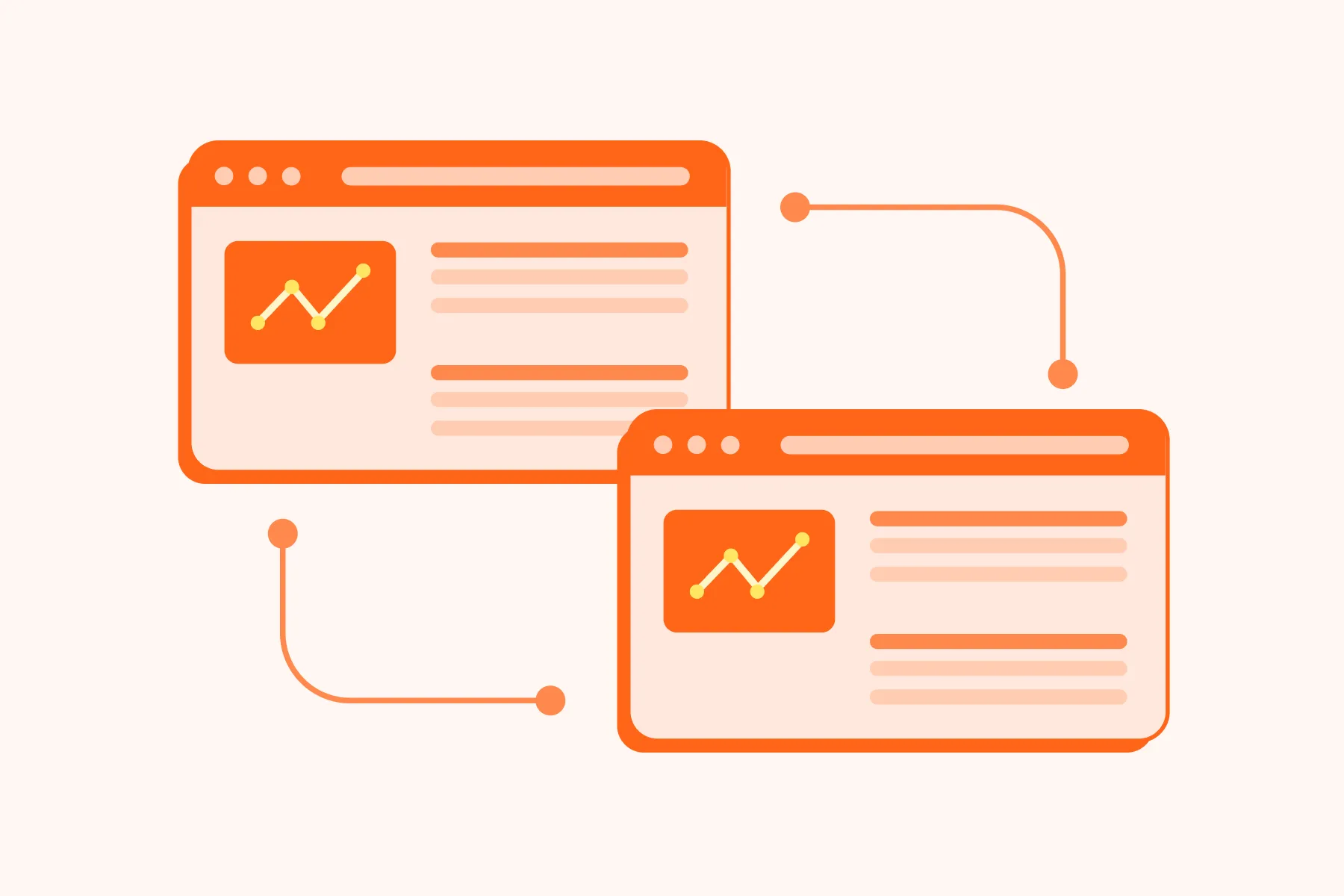6 Experts Share How to Use AI for Your B2B Marketing
Ekaterina Zotkova
October 23, 2024

We’ve asked 6 prominent professionals to share how they are harnessing AI in their work and provide actionable hands-on tips for B2B marketers. Join the industry leaders as they uncover the strategies that will define the future of AI-powered marketing.
Welcome to the new reality of the B2B industry: we are already living in the future of marketing and AI is no longer a novelty but a necessity. In this blog post, we delve into the insights shared by prominent marketing professionals about their experiences and strategies for integrating AI into their marketing efforts. From enhancing content creation to leveraging predictive analytics for lead scoring, each expert provides unique and practical insights and tips on how you can use AI to enhance your marketing and solve concrete challenges.

Mike Stachurski, Head of User Growth EMEA at TikTok, Ex-Senior Director – Global Digital Marketing at Arcadis
During my time at Arcadis, we were experimenting with AI to enhance our content strategies, including SEO copywriting, thought leadership content, and lead scoring.
One of the most effective ways we used AI was to streamline SEO content creation. By using AI-driven tools, we were able to generate optimized SEO copy that ranked well while still maintaining a human touch. AI helped us analyze keyword trends, competitor content, and search intent, allowing us to craft articles and web pages that directly targeted the needs of our audience. This significantly improved our organic search performance, driving more qualified traffic to our site.
AI also played a crucial role in thought leadership. We used machine learning algorithms to identify trending topics in our industry and tailor our content strategy accordingly. By understanding what conversations were gaining traction, we were able to position ourselves as thought leaders on key issues, ensuring that our content was not only relevant but also timely and impactful.
When it came to lead scoring, AI helped us go beyond basic demographic and firmographic data. We implemented AI-powered scoring models that analyzed user behaviour and engagement metrics to predict which leads were most likely to convert. This allowed our sales team to focus on high-potential opportunities, improving overall efficiency and conversion rates.
I’d recommend marketers explore how AI can enhance both their content and lead management efforts. AI-driven insights can help you stay ahead of competitors, improve SEO, and focus resources on leads that are more likely to convert.

Tobias Roediger, Fractional CMO The Chief Marketer, CMO Junto, Author of The Build Up Newsletter
AI is everywhere in marketing today—it's the buzziest of buzzwords. However, not all AI is created equal. Much of the spotlight is on generative AI tools like ChatGPT, which can have a place in our toolkits. But there's a significant aspect that's being overlooked: analytical AI. Analytical AI is a type of machine learning that can operate on structured and unstructured data sets too big for humans to comprehend.
According to the latest LinkedIn Benchmark report, only 26% of B2B marketers are using AI for data analysis and insights. That's a massive untapped potential. We all sit on mountains of data, but data alone isn't valuable unless it's transformed into actionable insights. Analytical AI can help us unlock hidden patterns, predict market trends, and personalize customer experiences like never before. It's like finding the key to a treasure chest that's been right under our noses.
The hesitation to adopt analytical AI often stems from a lack of understanding or the perceived complexity of these tools. Yet, modern AI platforms are becoming increasingly user-friendly and accessible, even for teams without deep technical expertise. By embracing analytical AI, marketers can move beyond surface-level metrics and gain deeper insights that inform everything from customer segmentation to campaign optimization.
While generative AI has captured headlines, it's analytical AI that truly holds the power to transform our marketing efforts by enhancing our ability to make data-driven decisions that propel our businesses forward.

Anya Policht, Brand & Content Marketing Manager at Pricemoov
Driving the content engine at a B2B SaaS pricing company, I leverage AI holistically across the entire content marketing cycle—from ideation to production, publication, updates, and repurposing. This approach has streamlined workflows and enhanced content quality, positioning us as thought leaders in the evolving world of tech.
For example, when crafting our content strategy around themes like data-driven pricing, I harness AI-powered tools such as ChatGPT to generate ideas rooted in industry trends and keyword analysis. This enables me to identify competitor gaps and niche angles, such as "AI in pricing strategies" or "real-time price optimization," which I then develop into comprehensive content pillars that drive high-value conversations across our channels. Anchoring the strategy in data ensures we consistently lead with impactful, relevant insights.
AI also maximizes the value I gain from subject matter expert (SME) interactions. Before collaborating with SMEs, I use AI tools like Ubersuggest Writer and ChatGPT to conduct in-depth research on long-tail keywords and emerging industry trends, shaping key content points ahead of time. This preparation allows me to facilitate focused, high-level discussions, making SME contributions more targeted and time-efficient. The result? A faster, smoother workflow that produces high-quality content showcasing thought leadership and aligning with our brand's market positioning.
When it comes to scaling content production, AI is a game-changer. I lead our team in utilizing AI writing tools like the abovementioned Ubersuggest Writer, Copy.ai, and You.ai to develop content at scale—from SEO-optimized drafts and product descriptions to personalized email campaigns and landing pages. AI-generated drafts enable us to address complex topics efficiently while maintaining a clear, accessible narrative enhanced with scannable headings and bulleted points. Moreover, AI ensures consistency in tone and messaging across all content, keeping everything aligned with our overarching brand voice and content strategy. As a stickler for detail, I rely on tools like Grammarly and Hemingway to simplify editorial oversight, ensuring content is polished, grammatically sound, and optimized for readability—crucial for engaging B2B SaaS audiences.
Beyond content creation, AI is pivotal in continuously refining and optimizing our content strategy. By leveraging platforms like Google Analytics 4 and HubSpot, I monitor content performance in real-time and use AI to identify opportunities for updates or enhancements. Evaluating user behavior and intent allows us to refresh older content, ensuring it remains relevant. And let's not overlook repurposing—AI-powered tools like Lumen5 and Descript help us transform content into various formats, such as videos or social media snippets, broadening our reach and engagement across multiple channels.
While AI does much of the heavy lifting, content is human-driven. Human oversight is still key to infusing context, brand voice, external references, and the SME’s unique expertise—essential elements to building and maintaining our brand authority.

Christopher Field, Head of Marketing at Zinfi Technologies
Here are my definite “do’s” for leveraging AI in your B2B marketing:
- Use predictive analytics for lead scoring. AI-powered lead scoring can look back into historical customer data to identify the most promising prospects. It enables the sales team to invest their time in the best leads, thereby shortening the selling cycle and increasing its efficiency.
- Personalize your content. Personalization to deliver highly tailored content increases engagement and boosts your conversions. AI can also help define audience segmentation by understanding the behaviors, preferences, and history of your customers.
- Automate repetitive tasks. AI can now automate many routine tasks in marketing, such as email sequencing, posting on social media, and follow-ups. It frees the marketing teams for higher-order work. Hence, productivity rises while consistency is maintained at the level of campaign execution.
- Improve customer experience with chatbots. AI-powered chatbots lower customer support costs while offering 24/7 service and providing instant answers to frequent inquiries. AI is the future of customer service in general: according to a study by Gartner, by 2025, 80% of customer interactions will be managed by AI-powered systems.
However, there are some things I would advise looking out for:
- Don’t let AI be a standalone agent in your decision-making. Yes, AI provides invaluable insights based on available data, but human judgment is a pivotal ingredient. AI lacks the subtlety needed for complex decisions that may involve customer relationships or perceptions about brands. I believe, major marketing decisions take inspiration from senior-level artisans who can balance data with intuition and experience.
- Avoid over-personalization. This might surprise some marketers, but people do not resonate with over-personalization of content, since they see it as too invasive. Too much personalization may come off as intrusive and overwhelming. According to the report by Accenture, 41% of US consumers switch companies over a lack of trust and poor personalization. This, therefore, calls for a balance in targeting based on data without violating the private life of customers.
- Don't deploy AI without a well-defined strategy. Blind adoption of AI will dissipate your resources without any return. Each company needs to decide on a rational AI strategy; it needs to explain the reason and how it will help overcome some very specific marketing challenges, such as generating more leads, automating, or improving customer experience.
- Watch out for data quality issues. AI is only as good as the data coming into a system. Bad data provides partial or incorrect insights – and that does some terrible things to marketing activities. Keep your data clean, timely, and unbiased to avoid skewed outcomes.
- Make sure your customers know about your ethics around AI. According to the 2024 Forbes report, the majority of consumers are concerned about how companies use AI. The good news is, 65% say they still trust businesses who use AI. Regular audits, combined with a robust ethical framework, will help ensure that your AI-powered processes meet legal thresholds and your company's values to keep that customer trust.

Brian Hansford, Vice President of Growth at LiveRamp, Advisor Goldcast
People still write the best content – hands down. AI hasn't changed that.
Sure, you can have AI write something for you and then tweak the prompts with multiple cycles. AI can be great to get the ball rolling and it can be fast. I often see marketing content that is slapped on a blog for SEO juice. Chatbots have gotten particularly ridiculous with AI conversation loops.
The best content is by far written by people. There's magic from blood, sweat, and tears to get the first words down. People can tell when something is written for them.
I've seen so much terrible content written by AI. It's robotic. Yes, I am guilty. I have used AI to rapidly write and deploy content. But we marketers are often using it as *THE* writer because we're understaffed and need to get shit done. From my perspective, we're losing the signal from the noise. There is no “pathological empathy” as Ann Handley has written. It's become more important to internally say “we used AI to produce XX% more content” when the audience only hears the noise. Customer outcomes aren't considered as much.
The things worth doing are hard. Good writing is hard, but it's worth doing well. Using AI wisely takes work. Don't get lazy.

Renato Cassinelli, Head of Marketing at PayRetailers
Here are some practical ways to implement AI into your B2B marketing strategy:
- Chatbots. Implement AI-powered chatbots on your website or messaging platforms to enhance customer support and engagement. Tools like Chatfuel and Manychat can help you build and manage chatbots easily.
- Content creation. Utilize AI-based content generation tools to streamline your content creation process. Tools like CopyAi Codes and Articoolo Research can help you generate blog posts, social media captions, and other written content quickly and efficiently.
- Social media management. AI-powered social media management tools such as Hootsuite and Sprout Social, Inc. can assist you in scheduling posts, monitoring engagement, and analyzing data to optimize your social media campaigns.
- Data analysis. Leverage AI-driven analytics tools like Google Analytics and IBM Watson Analytics to gain valuable insights from your data. These tools can help you identify patterns, trends, and correlations that can inform your marketing strategies.
- Personalization. Implement AI-powered personalization tools like Dynamic Yield by Mastercard or Evergage to deliver tailored experiences to your customers. These tools can help you customize website content, recommendations, and email campaigns based on individual preferences and behaviors.
- Predictive analytics. Take advantage of predictive analytics tools like Altair RapidMiner and DataRobot to forecast customer behavior, optimize marketing campaigns, and make data-backed decisions.
- Voice assistance. With the increasing popularity of voice assistants, consider incorporating AI-powered voice search optimization tools like Semrush or AnswerThePublic to ensure your content is optimized for voice-based searches.
Takeaways:
As our panel of industry experts has revealed, the integration of AI tools into your B2B marketing has become a critical factor for success. It leads to significant enhancements in efficiency, personalization, and ultimately, the bottom line.
However, as Christopher Field has rightly pointed out, the magic lies in balancing AI-driven insights with human judgment. AI should augment our capabilities, not replace the nuanced understanding that B2B marketers bring to the table.
As we look ahead, the businesses that leverage AI effectively – and with a human touch – will find themselves not just surviving, but thriving in this hyper-competitive market.
- AI as a necessity, not a novelty. The B2B marketing landscape has evolved to a point where AI integration is essential for success rather than an innovative addition.
- Applications of AI are extremely diverse. Experts highlight various applications of AI in content creation, predictive analytics, SEO, automating routine marketing tasks, and more.
- AI can enhance your content strategy. AI can significantly improve content generation processes. Professionals shared how AI tools can identify trending topics, streamline SEO practices, and facilitate efficient collaboration with subject matter experts, ultimately enhancing thought leadership.
- Analytical AI offers untapped potential. Beyond generative AI, marketers need to tap into analytical AI, which can transform large datasets into actionable insights, helping to uncover hidden patterns, predict trends, and enhance customer segmentation.
- AI is great for lead scoring and personalization. Employing AI for lead scoring not only improves the efficiency by focusing on high-potential leads but also allows for highly personalized content delivery, increasing engagement and conversion rates.
- AI allows automating repetitive tasks. Automating routine tasks with AI can free up resources for more strategic efforts, increasing overall productivity and ensuring consistency in marketing campaigns.
- AI is the future of customer experience. AI-powered chatbots can provide 24/7 assistance to customers, helping to reduce support costs while improving service. The use of AI in customer interactions is set to grow significantly, with predictions indicating that 80% of interactions will be AI-managed by 2025.
- Avoid blind AI adoption. Marketers should ensure they have a well-defined strategy to leverage AI effectively.
- Ethics and data quality are important. Marketers should prioritize getting high-quality and clean data, as it’s essential for AI effectiveness. Moreover, transparency around ethical AI usage is critical to maintaining consumer trust.
- The human element is still key. While AI can handle many tasks, the human touch remains irreplaceable in branding and marketing strategies. Marketers must blend AI capabilities with human intuition and experience to achieve optimal results.
Do you want more insights like these? Why not check Why B2B marketing sucks, and how to make yours better? You’ll discover top industry voices sharing their perspectives and offering concrete solutions to the problem of cliché and boring B2B marketing.
FAQs

February 3, 2026

February 2, 2026

July 10, 2024









